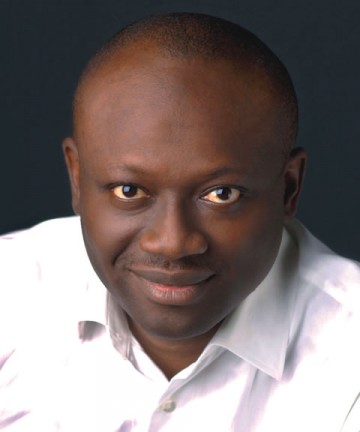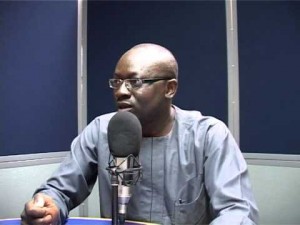In the beginning, there was a mistake – the “Mistake of 1914”. In split seconds, some 250 ethnic groups were compressed into one map by the British colonial masters. The contraption was poetically nicknamed “Nigeria” – an obvious contraction of “Niger Area”. There had been an unruly competition for African territory among the European colonial powers. They hovered over the continent, like vultures, looking for territories and resources to capture and devour. In 1884-85, they queued up at the Berlin Conference to share the loot. The British were gifted with the slices of Nigeria. They then created the Nigerian protectorates for their pleasure.
Before then, there was no Nigeria. No Southern Nigeria, no Northern Nigeria. There were many ethnic groups sprinkled randomly over the landmass. There were empires, kingdoms, city-states and emirates. War and peace united and divided hamlets, communities, villages, towns, cities and territories. Trade, military adventures and political alliances crossed borders, tribes and tongues.
But there was no Nigeria.
Then, the tag “Yoruba” did not refer to all the people we now call Yoruba. It referred to only the Oyo-speaking people who lived in places such as Oyo-Ile, Ibadan, Ede, Osogbo, Iwo and Ogbomoso, etc. Ekitis were called Ekitis. Ifes were called Ifes. Egbas were called Egbas. Ijebus were called Ijebus. Ijeshas were called Ijeshas. They were not called Yorubas.
In fact, the first newspaper to be published on these shores, established in 1859, was named Iwe Irohin Fun Awon Egba ati Yoruba, literally: “Newspaper for the Egba and the Yoruba”. As at 1859, therefore, Egbas were not referred to as Yorubas. It was the colonial masters and their missionary siblings, for ease of demography and identity, that applied the common identity of Yoruba to all descendants of Oduduwa who greet “eku”, “eka” and “okun” – stretching across what we now have as Lagos, Oyo, Osun, Ondo, Ekiti, Ogun and parts of Kwara and Kogi states. Today’s “Yoruba” national identity is, therefore, largely a colonial-era development.
In truth, too, the people we call Igbo today were not all known as Igbo before the amalgamation. For instance, Aro and Onitsha often rejected the ideology of corporate Igbo identity. B.O.N. Eluwa, who was the General Secretary of the Ibo Federal (State) Union, told the story of how he toured “Igboland” from 1947 to 1951 to convince “Igbo” villagers that they were indeed “Igbos”. He said these villagers “couldn’t even imagine” that categorisation. David B. Abernethy wrote: “In the 1930s, many Aro and Onitsha Ibos (Igbos) consciously rejected identification as Ibos (Igbos), preferring to think of themselves as separate, superior groups.” In simple language, therefore, the popular Igbo identity in use today is post-amalgamation.
The Igbo story, as told by Eluwa in his book, Ado-Na-Idu: History of Igbo Origin, is instructive. Unlike the Yoruba who migrated as a group, Eluwa said the Igbo migrated in clans – and that should explain the noticeable cultural and linguistic differences. The people we call Anioma today (Delta Igbo, Onitsha, etc) migrated along with the Edo, hence the cultural and lingual similarities (dressing, kingship, “do”, “ndo” etc). The Nsukka Igbo migrated through present-day Benue State, hence the similarities with the Idoma, including facial marks. Many clans in today’s Anambra settled in Igalaland before moving Southward. On the basis of these accounts, many Igbo clans apparently lived in the North centuries ago.
What’s more, what we call “North” today was just a large expanse of land occupied by various sovereignties – the Kanem-Bornu empire, the Hausa kingdoms, the Kwararrafa (Jukun) empire and the Nupe kingdom, etc. Not until the Hausa kingdoms were captured into the Sokoto Caliphate through Usuman Dan Fodio’s jihad was there a dominant sovereignty in the North. But the North was never one entity. The Kano man, though Hausa, called himself Abakani and the Zaria man Abazasage. They were Hausas and Muslims quite all right, but they were always at war, killing each other. They did not see themselves as Hausa kith and kin, but as rivals trying to expand their territories, just like the pre-colonial “Yoruba” kingdoms.
In sum, contrary to the popular impression, it is not just “Nigeria” that is a colonial contraption. Most of the ethnic and regional identities we so dearly cling to today were either colonial contraptions or constructed by us in the contestation for power in the embryonic Nigeria. The British created the Niger Coast Protectorate in 1893, formed the Northern Protectorate in 1900, and added the Lagos Colony to the Niger Coast Protectorate in 1906 to establish the Southern Protectorate. In 1912, Sir Frederick Lugard was appointed governor for both Northern and Southern protectorates in preparation for the amalgamation for ease of administration.
Then came January 1, 1914. Then came the mistake. The “Mistake of 1914”.
But what was the “Mistake of 1914”? Was it the fact or the act of amalgamation? Those who blame the “fact of amalgamation” say there should never have been a Nigeria, that Nigeria is a fraud, that the various ethnic groups had nothing in common and that Nigeria is just a colonial contraption. Conversely, those who see the “act of amalgamation” as the “mistake” posit that the problem was not the amalgamation per se but the failure of the colonial masters to consciously integrate the 250 ethnic nationalities into one nation. It was like proclaiming a couple man and wife without courtship and without honeymoon. This foundational error in nation-building, they argue, is the “mistake”.
Meanwhile, to say the North and the South had “nothing” in common is a complete exaggeration. Commerce and migration made their paths cross. The story of the farming, trading and consumption of the kola nut puts a lie to the suggestion that the North and the South had “nothing” in common. Many Southern ethnic groups that migrated from Upper Sudan actually settled in the North before their Southward journey. Some political scientists will even argue that the amalgamation was a natural consequence of these historical links. Those who claim the amalgamation was intended to feed the North with Southern resources apparently care little about economic history. For centuries before the amalgamation, Kano was one of the biggest centres of trade in Africa.
I would rather think the biggest challenge to our nationhood today is how to move away from the ethnocentric mindset of the pre-Independence era. Most of our founding fathers were ethnic nationalists. A notable exception, Dr. Nnamdi Azikiwe, eventually abandoned his pan-Nigerian ideals when confronted with our stark political reality. Today, we are still searching for that pan-Nigerian identity. Unfortunately, more and more ethnic nationalists and their offspring are taking the political centre stage and reinforcing these divisions, with balkanisation in mind. Nevertheless, on several indices of integration – such as inter-ethnic marriage, cultural assimilation and internal migration – we are not doing badly, at least compared to 1914 or 1960. However, the political mismanagement of our diversity means we will continue to live with conflicts and tensions.
But we who believe in “unity in diversity” should refuse to give up on Nigeria. With competent and patriotic leadership, our march to greatness will be unstoppable. This I believe.
•NOTE: This article is an abridged version of a chapter in my debut book, Rethinking Nigeria, due for release later this year.
And Four Other Things…
COUP SCARE?
A newspaper report said a coup scare was responsible for recent shake-ups in the military. I am not so sure military rule has proved to be better than democracy in Nigeria. The military introduced most of the distortions to the federal structure that we are battling with today. Soldiers are no better looters either. The formation of All Progressives Congress (APC), in my opinion, is the ultimate “coup” we need to strengthen our democracy and improve governance. With a fierce competition between two strong national parties, our democratisation project can only get better.
ONE-TERM PACT
Did President Jonathan sign a pact in 2011 to do only one term? This controversy has been raised yet again by Governor Murtala Nyako of Adamawa State. Governor Babangida Aliyu of Niger raised it two years ago, while President Obasanjo alluded to it in his “letter bomb”. Jonathan’s men have denied this and challenged the governors to leak a copy of the agreement to the media to put the speculation to rest for ever. I don’t even think we need all this argument again. Jonathan would want to run as long as it is within his right. The solution? Let Nigerians decide in 2015…
REFINERIES AGAIN
There were protests by oil workers last week against the proposed sale of refineries. I think this is a wrong-headed move. To keep the refineries in government control is to continue to waste billions of dollars on maintenance that gets us nowhere. When President Obasanjo sold Warri and Kaduna in 2007, President Yar’Adua reversed it and pumped another round of billions into them. Nothing came out of it. I think the unions should refine their argument. What we need is a transparent process that meets global standards. The refineries must not be surreptitiously sold. Simple.
CORRUPT JUDGES
Imagine how relieved I was to learn about the impending prosecution of seven judges on charges of corruption. It is not enough for the National Judicial Council (NJC) to discipline them. They should stand trial and go to jail if found guilty. We often complain that government is not fighting corruption, but that does not tell the whole story. Lawyers and judges play a major role in scuttling graft trials and making sure no “big man” is brought to justice. EFCC and ICPC cannot jail people! It is only the judiciary that is empowered by law to do. And if the same judiciary is rotten, God help us!


